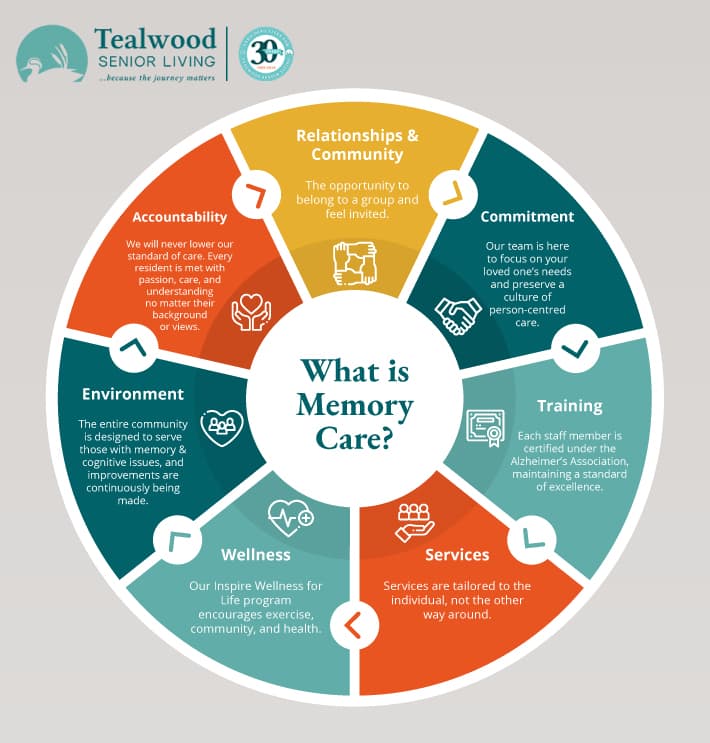High-Quality Care Plans Offered With Alzheimers Care Charlotte Centers
High-Quality Care Plans Offered With Alzheimers Care Charlotte Centers
Blog Article
Specialist Tips for Offering Top quality Alzheimer's Care in the house
Caring for a private with Alzheimer's disease at home presents one-of-a-kind obstacles that need both understanding and strategic preparation. As we discover these specialist tips better, it becomes clear that a thoughtful method can considerably influence the high quality of life for both the caregiver and the individual obtaining care.
Understand Alzheimer's Condition
Alzheimer's disease, a modern neurodegenerative disorder, exceptionally influences cognitive function and day-to-day living activities. It mainly impacts memory, thinking, and actions, leading to a progressive decline in the abilities needed for independent living. Early symptoms typically consist of forgetfulness, trouble in problem-solving, and difficulties in completing acquainted jobs. As the disease advances, individuals might experience disorientation to time and area, impaired judgment, and modifications in mood and character.
The etiology of Alzheimer's is complex, involving the accumulation of amyloid plaques and tau tangles in the mind, which disrupt neuronal communication and cause cell fatality. Risk factors include age, genes, and way of living choices, with the majority of instances happening in people over 65. Understanding of these elements is critical for caretakers, as understanding the condition can facilitate better assistance and treatment methods.
In addition, Alzheimer's condition not just influences the individual but also has substantial emotional and logistical ramifications for families. Acknowledging the stages of the illness permits caregivers to anticipate challenges and adjust their strategy, making certain that the requirements of those impacted are consulted with empathy and understanding. This foundational expertise is crucial for advertising top quality treatment at home.
Establish a Regular
Creating an organized everyday routine can dramatically enhance the quality of life for people living with Alzheimer's condition. Developing constant patterns helps to minimize confusion and anxiousness, providing a complacency and familiarity. A daily timetable ought to consist of routine times for dishes, tasks, and rest, which can assist people anticipate what to expect throughout the day.
Including straightforward, acquainted tasks into the routine can advertise a feeling of achievement and self-reliance. Activities like gardening, food preparation, or also easy household tasks can be beneficial. It is vital to customize these activities to the individual's capacities and interests, making sure interaction without frustration.
In addition, flexibility within the routine is crucial. While uniformity is essential, enabling adjustments based on the individual's state of mind or energy levels can help maintain a favorable atmosphere. Encourage participation in social interactions, whether with family members brows through or neighborhood tasks, as these can provide stimulation and connection.
Enhance Communication Skills
Efficient communication is necessary for keeping purposeful links with people coping with Alzheimer's condition. As cognitive capacities decline, standard conversation may become tough. Consequently, caregivers should adjust their interaction approaches to cultivate understanding and connection.

Show genuine passion by preserving eye get in touch with and responding to recognize their thoughts or feelings. Rather, confirm their emotions and redirect the conversation gently if needed.
Using visual help, such as images or created suggestions, can likewise improve comprehension. Encourage participation in activities that stimulate conversation, such as reminiscing concerning previous events or browsing photo cds.
Develop a Safe Atmosphere
A supportive setting plays a substantial duty in the health of individuals with Alzheimer's condition. Developing a risk-free home setting is important to decrease dangers and improve the lifestyle for both the private and their caregivers. Begin by assessing the space for prospective threats. Get rid of tripping hazards such as loosened rugs, electrical cords, and mess. Guarantee that pathways are clear and well-lit to avoid falls.
Mount safety locks on doors and windows to avoid wandering, which is a typical problem in Alzheimer's clients. Additionally, think about using non-slip floor coverings in washrooms and install grab bars for included assistance. Identifying spaces and vital products can aid individuals navigate their surroundings a lot more easily.
Emergency situation contacts should be plainly published near phones, and a clinical sharp system can offer tranquility of mind. Overall, tailoring the home environment to the distinct needs of the private with Alzheimer's not only promotes security yet also encourages independence and comfort.
Seek Support and Resources
Accessing assistance and sources is essential for caregivers and people encountering the difficulties of Alzheimer's illness. Caregiving can be frustrating, both literally and psychologically, and it is essential for caretakers to seek help to preserve their wellness and offer quality care.

Furthermore, exploring reprieve care alternatives can afford caretakers much-needed breaks, allowing them to reenergize and minimize exhaustion. This may consist of grown-up day programs or in-home treatment services. Economic assistance programs may likewise be available to assist counter the costs of treatment.

Conclusion
In summary, offering high quality Alzheimer's treatment at home requires a complex method. Understanding the complexities of the illness, developing an organized regimen, improving interaction abilities, developing a secure setting, and seeking support from offered sources jointly contribute to boosted caregiving experiences. Executing these methods not just promotes a sense of independence and achievement for individuals with Alzheimer's but additionally alleviates caregiver tension, inevitably enhancing the quality of life for both caregivers and those they support.
Caring for a private with Alzheimer's condition at home read presents unique challenges that require both understanding and strategic planning.Moreover, Alzheimer's illness not only affects the private but also has substantial psychological and logistical effects for family members.Creating a structured daily regimen can significantly enhance the quality of life for people living with Alzheimer's illness.Efficient communication is necessary for keeping significant connections with individuals living with Alzheimer's condition. Alzheimers Care Charlotte. Executing these methods not only fosters a feeling of self-reliance and accomplishment for individuals with Alzheimer's but additionally relieves caretaker stress and anxiety, inevitably improving the quality of life for both caretakers and those they sustain
Report this page